What Is ISO Tank?
The ISO Tank Story
A tank container with ISO standard
What is an ISO Tank?
An ISO Tank is a tank container which is built to the ISO standard (International Organisation for Standardisation). ISO tanks are designed to carry liquids in bulk, both hazardous and non-hazardous.
The tank is made of stainless steel and is surrounded by various types of protective layers. Different skins can be used with an ISO tank depending on the type of bulk cargo it is carrying. It has a manhole on the top along with at least one valve and another valve on the bottom. They are shaped like a cylinder.
Tanks are classified according to the specification of the tank shell and fittings. It is the classification which determines what type of product maybe carried. Although tank containers have a fairly uniform external appearance, the construction materials, linings, and fittings vary.
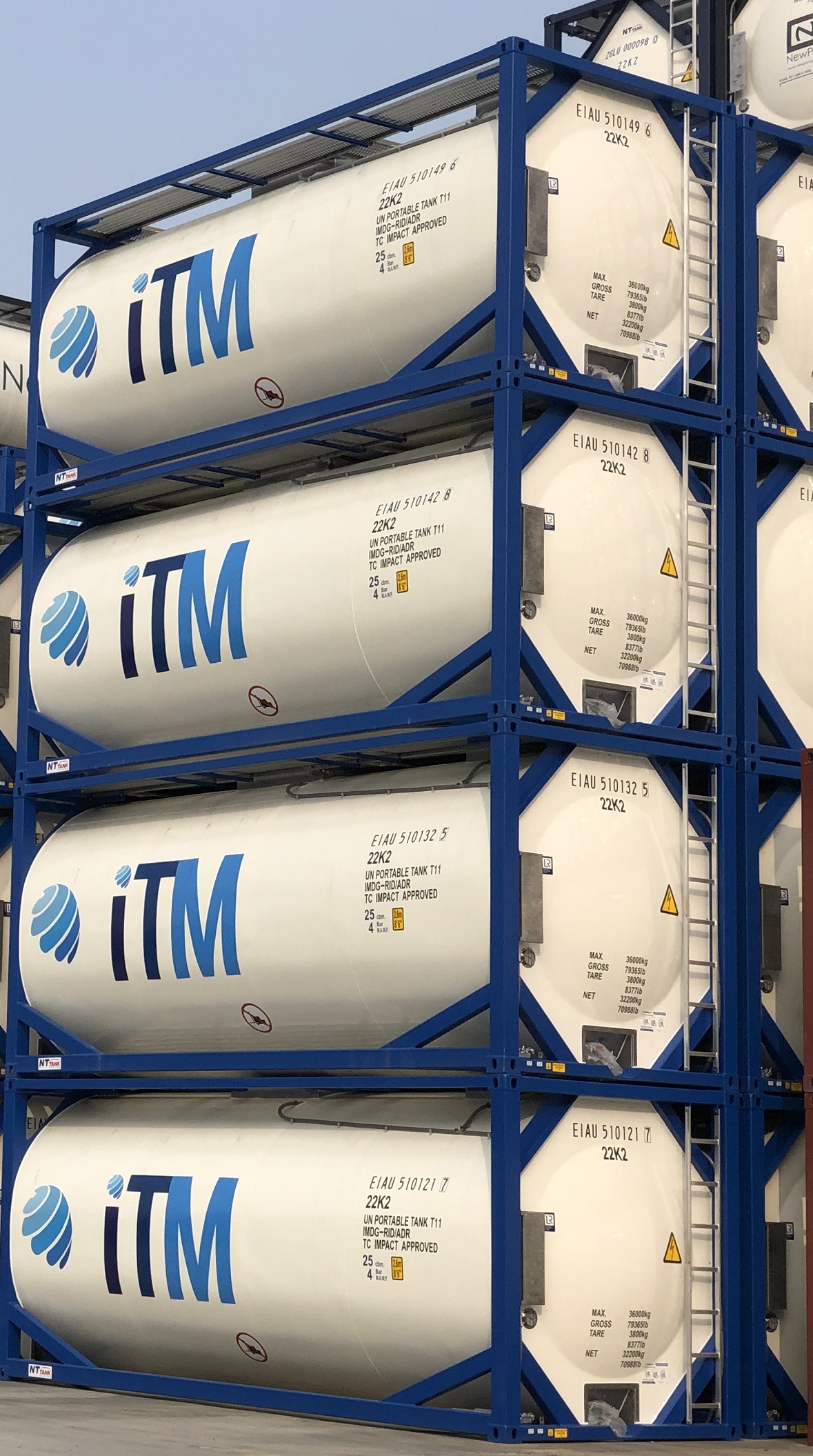
Advantages of an ISO Tank
Advantages of an ISO Tank
ISO tanks are designed to meet specific criteria according to the substance they will be carrying. They are very reliable and can withstand extreme pressure and damage. They are highly unlikely to leak, do not require additional packaging materials for the cargo, can maintain a specific temperature for temperature sensitive cargo and they can be transported by road, rail or boat.
Why ISO Tank?
Because ISO tanks are built according to the ISO standard, it is preferred medium of transport for bulk liquid products. ISO tanks is reusable, recyclable & can be remanufactured, thus it is very environmentally friendly.
Potential defects of ISO storage tanks
Parts of ISO Tank
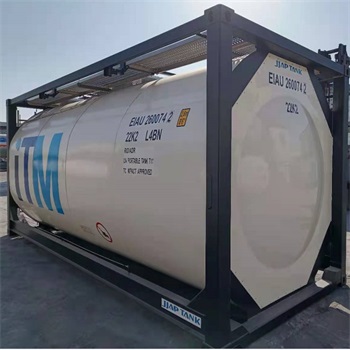
FRAMES
ISO dimensioned frames are typically fabricated from high tensile carbon stell and comply with ISO dimensions.
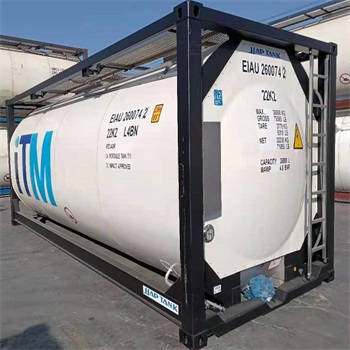
CLADDING
The outer surface around the shell that protects the insulation from water. Usually made from GRP (Glass Reinforced Plastic) or aluminum.
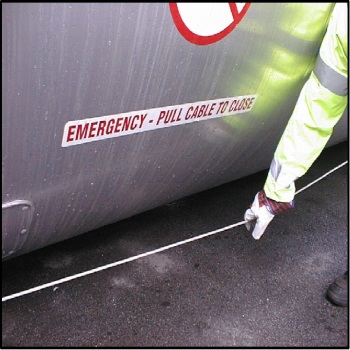
REMOTE BOTTOM VALVE CONTROL ROPE
Remote closure device ,Fusible link required by US
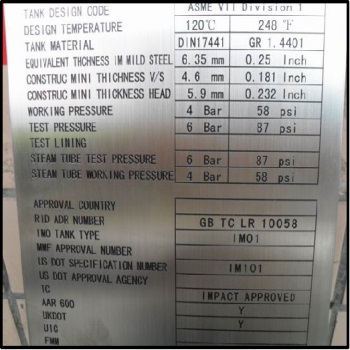
DATA PLATE
Shows many details of the tank container including current test data, the manufacturer and the permitted weight/capacity.
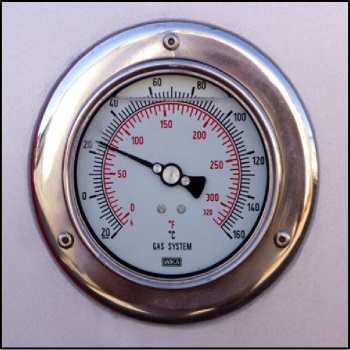
TEMPERATURE GAUGE
Is fitted to the rear of the tank giving and indicative reading of the temperature of the product.
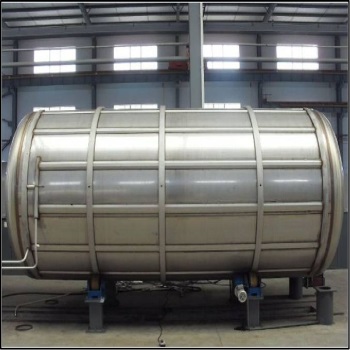
STEAM HEATING SYSTEM
Tanks are fitted with efficient steam heating systems making the tanks useful for heat sensitive products.
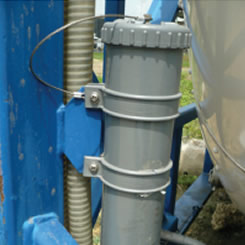
DOCUMENT HOLDER
A sealed tube fitted to the frame of the tank for carriage of pertinent documents like COA (certificate of analysis), cleaning certificate, etc.
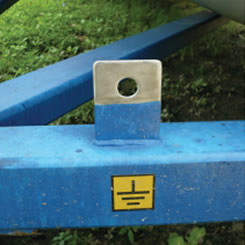
EARTH/GROUND LUG
A connection for grounding or earthing the tank during loading/unloading. Dissipates static electricity.
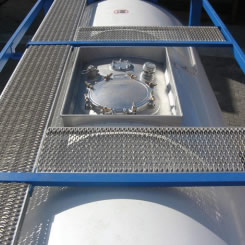
WALKWAY
Ladder and top walkways, for an easy and safe access to the top of ISO Tank.
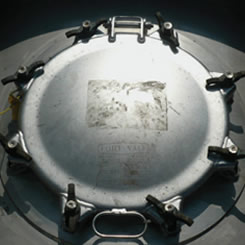
MANLID
Located on the top of the tank and is used to enter the tank for internal inspection (please be cognizant of confined space entry regulations).
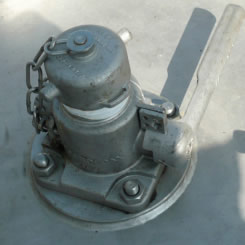
AIR INLET VALVE
Fitted to the top of tank and used as a pressure device during unloading and recovery device during loading.
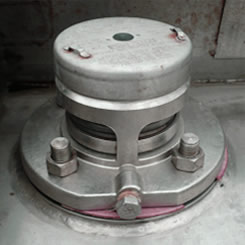
SAFETY RELIEF VALVE
A pressure (or sometimes a combination pressure/vacuum) relief valve is fitted to every tank to protect the tank against excessive over pressure or vacuum.
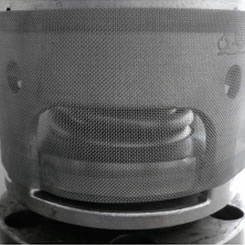
FLAME TRAPS
A metal gauze that is fitted over the SRV(s) when carrying flammable products. It permits to be expelled but prevents flashback.
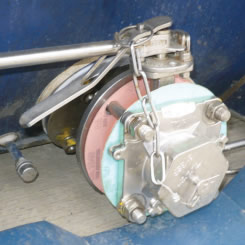
BOTTOM VALVE ARRANGEMENT
Typically tank containers have 3 closures for maximum protection of product leakage. Tanks are pressure tested before loading to ensure no leaks and all valves are operational.
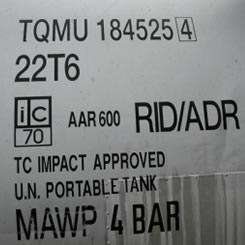
TANK NUMBER
Every container is identified by its unique 4 alpha and 6 numerical number. The check digit (7th number) is derived from a formula using the tank number.

BAFFLE TANK
Minimize liquid surge, permitting transport of less than 80% fill.
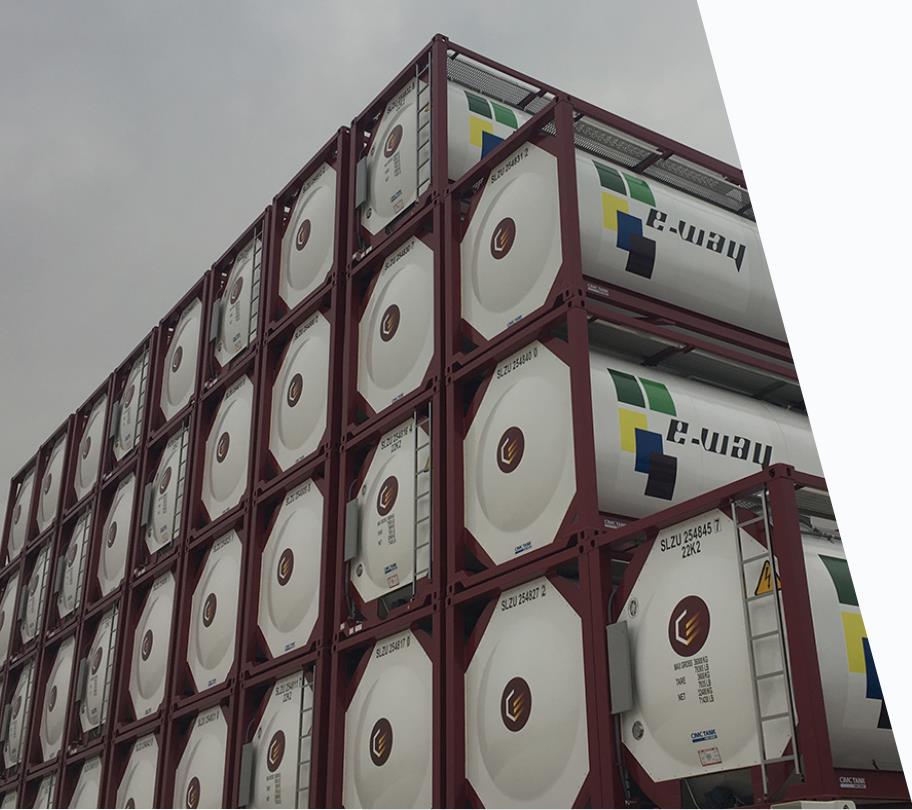
Our advantage
diversity
Employees have backgrounds in chemistry, business administration, finance and accounting, sales and marketing, production and operation management, etc. We always put what is right in the right place.
Interactive culture
We arrange and encourage the interaction between employees, so that they can learn the strengths and professional fields of others. As time goes by, multi-functional, comprehensive and multi-tasking employees will be born from this culture, and we will recruit them into the management team.
Strong leadership and performance
Clear leadership principles, comprehensive training and development plans. We apply a reward program for outstanding performance.



